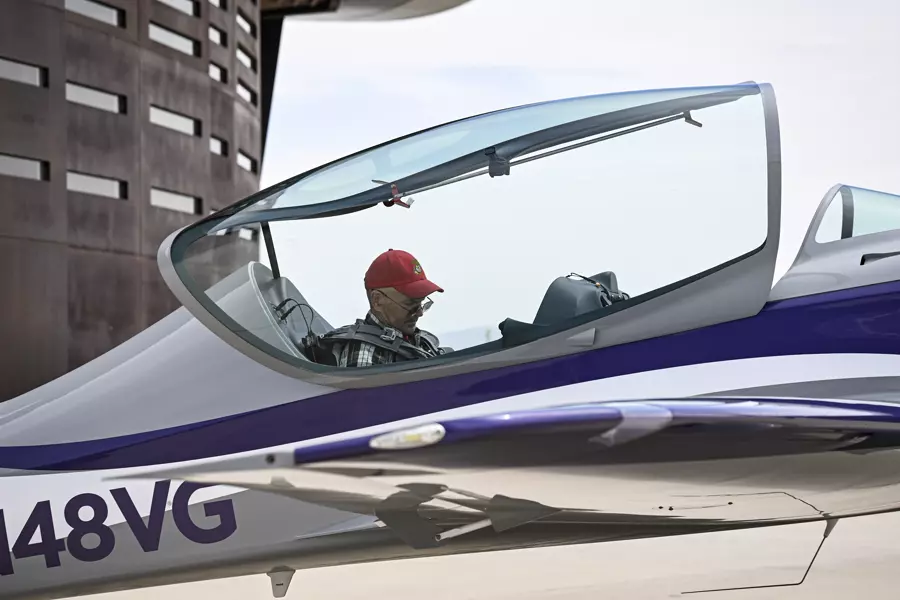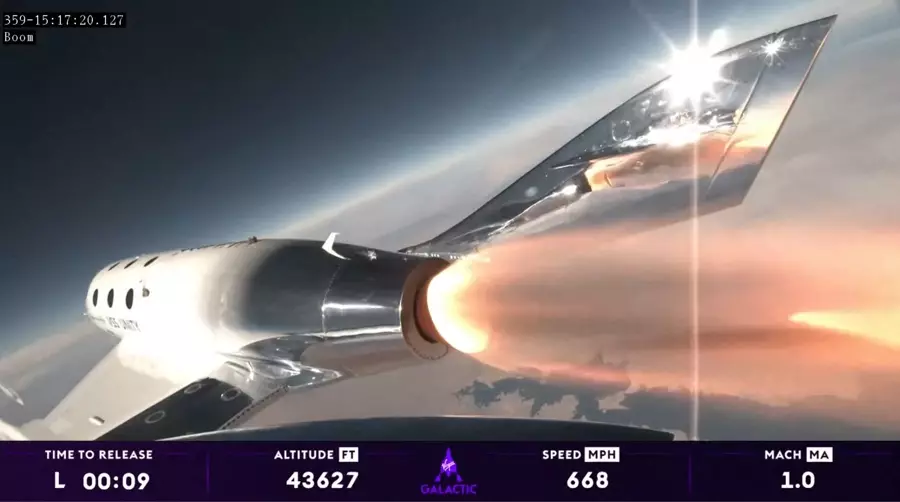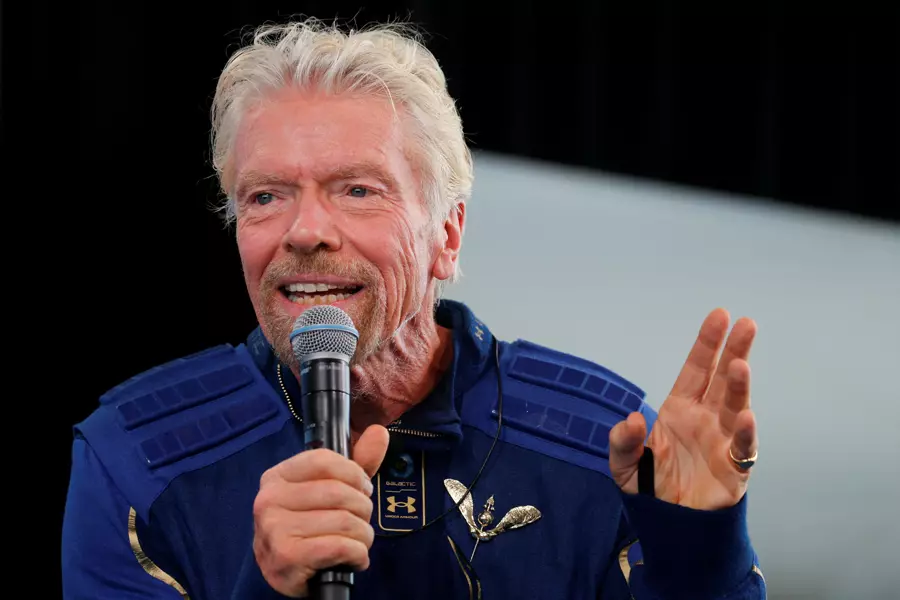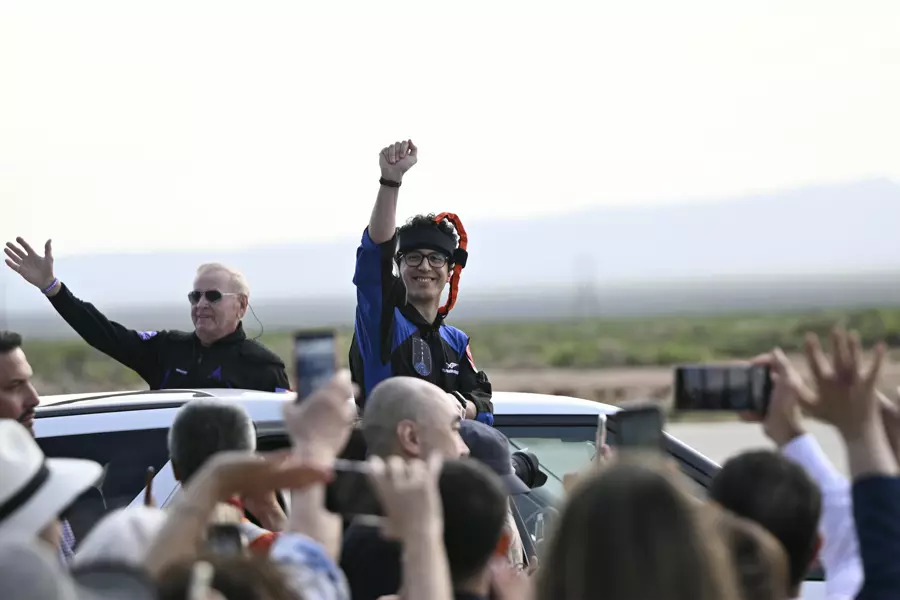Virgin Galactic’s Latest Commercial Research Mission Marks Final VSS Unity Spaceplane Flight.
Virgin Galactic’s seventh commercial research mission soared into the skies over New Mexico on Saturday, marking the last flight for its VSS Unity spaceplane. The historic journey began just after 10:30 a.m. EST from British billionaire Richard Branson’s company base in Spaceport, NM, and concluded an hour later with a successful landing, as stated in a news release.
Watching our pioneering spaceship Unity return from space on its final commercial flight was a breathtaking and proud moment,” said Michael Colglazier, CEO of Virgin Galactic.
Four astronauts were aboard the VSS Unity during its last mission dubbed “Galactic 07”: Tuva Cihangir Atasever from Turkey, Giorgio Manenti from Italy, Anand “Andy” Harish Sadhwani from California, and Irving Izchak Pergament from New York. These brave individuals reached the edge of space, experiencing approximately three minutes of weightlessness before returning to Earth safely.
Reflecting on their participation in this groundbreaking mission, Atasever expressed his gratitude for having represented his country while conducting vital research that will impact future space endeavors. The research conducted during this mission included various experiments such as headgear equipped with brain activity monitoring sensors and two insulin pens to examine their functionality in microgravity conditions.
Purdue University and the University of California, Berkeley also contributed experiments designed to monitor fuel slosh within spacecraft tanks and test new 3D printing technology under microgravity conditions. These collaborations further demonstrate Virgin Galactic’s commitment to advancing space exploration through scientific research and innovation.
As Virgin Galactic celebrates the VSS Unity’s numerous accomplishments, it prepares for the launch of its first Delta Class ships in 2026. The company will shift its focus towards these new vessels, with plans for test flights beginning in 2025 and commercial service commencing in 2026.
The Delta class ships are expected to offer an enhanced passenger experience compared to the VSS Unity, boasting a capacity of six passengers rather than four. Furthermore, Virgin Galactic aims to generate profits by raising seat prices from $450,000 to $600,000 for each ticket sold on these new spacecraft.
Branson’s ambitious aerospace and space travel company is not projected to become profitable until 2026, following significant financial losses over the past two years, totaling more than $100 million, and layoffs of nearly 200 employees. Despite these challenges, Virgin Galactic remains determined to push the boundaries of space tourism and scientific research through cutting-edge technology and unparalleled customer experiences.
In January of this year, Virgin Galactic’s first flight of 2022 encountered an unexpected issue when an alignment pin detached during the mission, which resulted in an investigation by both the company and the U.S. Federal Aviation Administration. Although this incident did not pose any danger to the crew aboard the spacecraft at the time, it served as a reminder of the inherent risks associated with space travel and exploration.
Undeterred by previous setbacks, Virgin Galactic continues to forge ahead in its mission to make space tourism a reality for those willing to invest in this once-in-a-lifetime experience. With each successful flight, such as “Galactic 07,” the company edges closer to achieving its ultimate goal of turning a profit and revolutionizing the way humans explore the cosmos.







